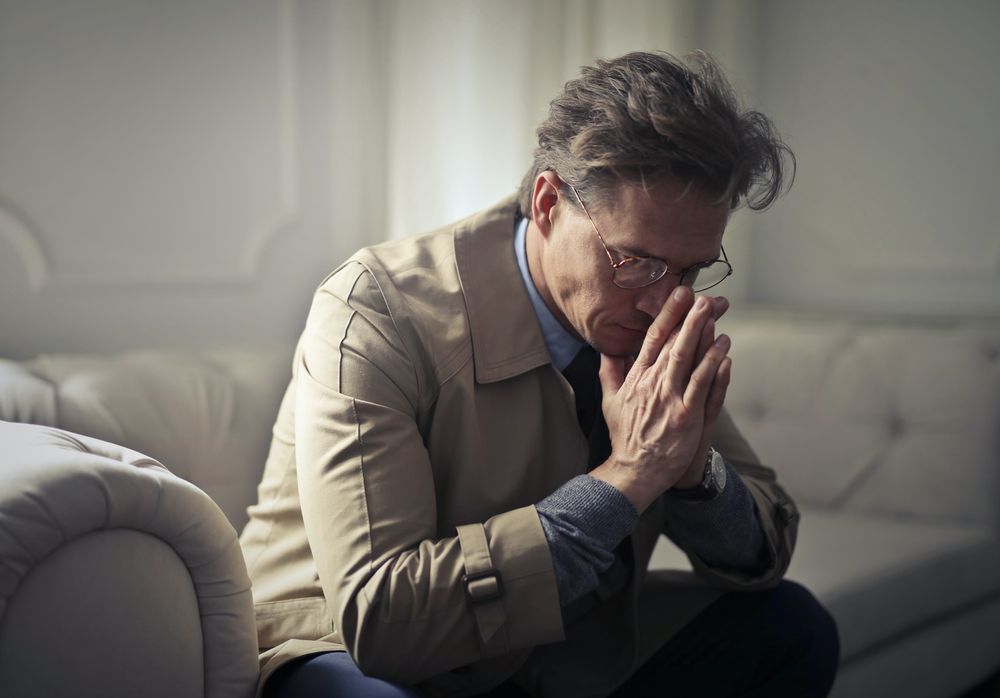First, let’s talk it out.
According to WHO, Depression is the leading illness in the world and is one of the major reasons for suicides globally. The story in India is no different.
Everyone gets depressed at some point or other in life. Problems with finances, jobs, self-confidence, and relationships affect the best of us. However, there is a difference between feeling low for a short period and clinical depression. If you are not able to function normally because you are feeling incredibly sad, worthless, or helpless for days or weeks on end, you may well have clinical depression. The good news is that clinical depression can be treated. It’s time to talk about this condition, instead of brushing it under the carpet.
Stages of Depression
The stages of depression are not scientifically agreed upon. However, it is true that there are stages a depressed person goes through. This is the pattern they generally follow:
- Depression is first characterized by denial followed by anger. People do not accept that they suffer from depression; they brush it off as just a low point in their life. Then they feel angry at the world and its injustices. They question why are they the ones picked to go through this suffering?
- This stage is followed by personifying the depression and confronting it. This can include trying to strike bargains with it to make it leave or negotiating with it to leave you alone.
- After this comes the lowest of the low – feeling so depressed that getting out of bed is a chore, getting dressed and going to work is impossible. You may keep thinking of death and how welcome it may be. At this stage, family members are genuinely worried and push you to take psychiatric treatment.
- Acceptance is the last stage when you truly acknowledge that you have an illness and need to be treated. A life spent in this condition seems to be agony, and you know you need help. Mental illness is no longer a taboo word, but something to absorb, accept and treat.
Depression Today
In today’s world, depression has become a very common illness. Everyone knows someone who has suffered from or is battling depression. Losing a loved one, getting laid off, being abused or stressed serve as triggers.
People face stress in the workplace in the form of pressure to work late, deliver on time, and abusive managers. There is stress at home too – demanding relatives and the pressure of running a growing household. Lack of proper sleep and nutrition just compound the problem.
The Young are at Risk too
Depression has spread its tentacles among the younger generation too. There are so many youngsters who buckle under the need to do well in their studies and exams. Add to that, the pressure of being part of a ‘happening’ group of friends or having a girlfriend/boyfriend.
Lack of communication with parents, unsympathetic teachers, and the pressure to achieve and fit in also contribute. The newest factor leading up to depression is social media – becoming and staying accessible on Twitter, Instagram and Facebook is a heavy psychological burden to carry.
Diagnosing Depression
Various signs to look out for include:
- Feeling depressed for almost the whole day, especially in the mornings after waking up
- Feeling tired and low on energy daily
- Indecisiveness
- Low concentration
- Feeling guilty and/or worthless constantly
- Sleepless nights or too much sleeping almost daily
- No pleasure or interest in any activities
- Feeling restless or bogged down
- Repeatedly thinking of dying and suicide
- Marked increase or decrease in body weight
Though depression is not the taboo that it used to be even a decade back, awareness is still low. Often, it is not recognized or diagnosed until it is quite advanced. At this stage, popping pills and taking prescribed anti-depressants only provides symptomatic relief. The later the diagnosis, the longer is the road to recovery.
Treating Depression
Most treatments like Electroconvulsive Therapy (ECT) or prescription drugs treat the symptoms of depression, not the cause. Relief is short-lived, and patients often relapse after some period. The only way to cure depression is ‘naturally’
Depression can be treated from the root by bringing about some lifestyle changes. Psychiatrists and therapists act as enablers in this process by helping you talk through the problems you face. Here is what you can do:
- Reach out to people who matter and involve them in your cure. Suffering from depression is much harder when alone. Having trusted family and friends by your side can go a long way in speeding up your recovery.
- Exercise regularly to boost secretion of feel-good hormones like serotonins and endorphins. Exercising also increases the growth of brain cells and synapses which are the connections in the brain. This helps you to fight out of depression. Aim to do at least 30 minutes of exercise daily, even if it just means going for a brisk walk. Getting your body moving may seem like the hardest thing in the world, but stick to it.
- Sleep for at least 7 to 9 hours every night. This is the amount of sleep you need to rest your brain and body. Sadness, mood swings, fatigue, and irritability all increase if you are sleep-deprived. Sufficient sleep is an effective weapon to combat depression.
- Take care of your nutrition. Eat small-sized balanced meals at regular intervals instead of a big, heavy meal. Avoid sugary foods even if they make you feel good momentarily. Complex carbohydrates are a better choice for gaining higher energy levels in the long run. Skip the coffee. Replace it with tulsi tea or infused water.
- Natural anti-depressants like cashew nuts, turmeric in milk or food, bananas, whole grains, leafy vegetables should be considered before popping any prescription drugs.
- Get plenty of sunlight. This ensures you get enough Vitamin D and helps you feel more cheerful too. Eliminate stress creators from your life, whether they exist in your work or personal life.
- Naturopathy Therapies like foot bath and certain yoga asanas along with Pranayam can help you release the stress in your mind and body.
- Try and relax after a day’s work. Find your “me” time to connect with self. Spend time in nature away from gadgets. Do things you enjoy – get a massage, listen to music, play a sport, or spend time with your loved ones.
It’s all about finding the calm in the chaos!
Everyone says- I’m fine. If you know of someone who has symptoms of depression, help him or her reach out to help.

